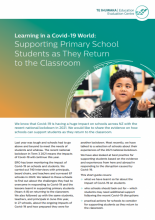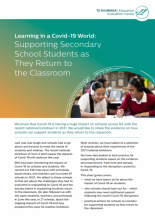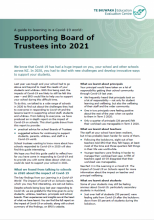Learning in a Covid-19 World: The Impact of Covid-19 on Teachers and Principals
This report looks at the impact of Covid-19 on teachers and principals – including how Covid-19 has impacted enjoyment in work and workload. This report also sets out examples of how schools can prepare for 2022 and what supports will be needed for teachers and principals.











